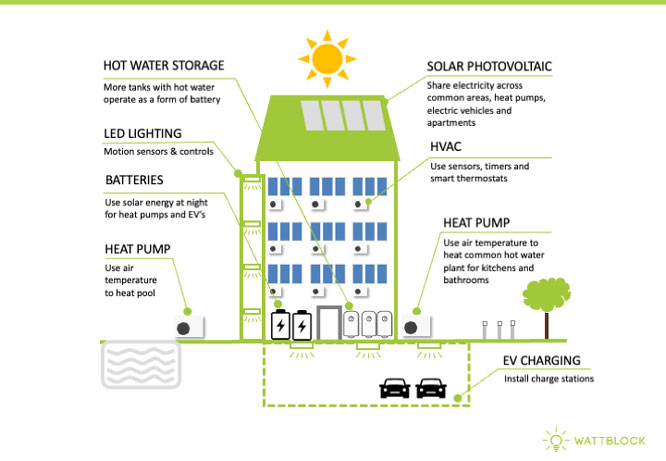Council’s Response to Climate Change
With strong support from the community, Mosman Council declared a Climate Emergency in November 2019. To ensure a strategic, efficient, and transparent response, the development of a Climate Change Action Plan was identified as the most effective course of action. This plan outlines initiatives for Council consideration, evaluated through the lens of economic, environmental, social, and governance outcomes.
In July, 2020, Council resolved the following:
- Set a target of net zero emissions for Council operations by 2030
- Establish an aspirational target of net zero emissions for the broader community by 2040
To guide these commitments, Council developed the Climate Action Plan – Mitigation Strategy, shaped through collaboration with internal and external stakeholders. A draft version was released for public consultation in December 2020. Following community feedback and subsequent revisions, the final strategy was adopted by Council on 6 April 2021.
This Mitigation Strategy outlines Mosman Council’s commitment to reducing environmental impacts both within Council operations and across the broader Mosman Local Government Area (LGA). It focuses on direct actions to cut carbon emissions and achieve net zero, while also engaging and supporting the community in reaching this shared goal. The Mitigation Strategy is a living document, updated annually to reflect emerging technologies and new initiatives.
Complementing this is the Climate Action Plan – Resilience and Adaptation Strategy, which, alongside the Mitigation Strategy, forms Council’s comprehensive response to climate change. A draft of the Adaptation Strategy was released for public consultation in June 2022. After incorporating public feedback, Council adopted the final version on 8 November 2022.
While there is natural overlap between the two documents, the Adaptation Strategy specifically identifies the actions needed to reduce the impacts of climate change. It highlights both public and private assets requiring adaptation to withstand predicted climate effects and outlines strategies to strengthen resilience among Mosman residents—ensuring the community is well-connected, prepared, and able to recover from climate-related events.
Like its counterpart, the Adaptation Strategy is a living document. It is reviewed and updated annually, with progress reported to Council.
See the Climate Action Plans webpage to view the climate strategies.
Visit the How to Live Sustainability webpage for tips on how to reduce your carbon footprint and live more sustainably
Council Projects
Council is driving forward emissions mitigation projects to help reduce its and the communities impact on climate change.
From 1 July 2022 all of Council energy has been supplied by renewable sources as part of a deal secured along with 24 other participating councils.
Mosman Council has installed solar PV systems to reduce greenhouse gas emissions and improve sustainability with the following projects. Solar panels have been installed on the Civic Centre ~70 kW, solar panels and a battery at the Council Depot ~11 kW and ~14 kWh battery storage, batteries at the Marie Bashir Sports Hall ~45 kWh battery storage (to accompany the existing solar array ~52 kW) and solar panels installed on the Georges Heights amenity building ~11kW.
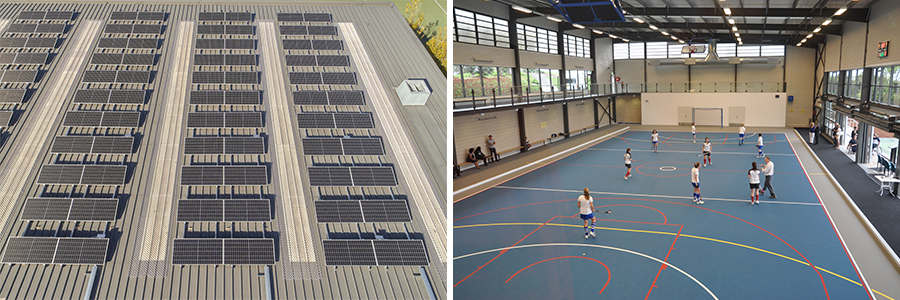
LED lighting replacement has been completed at the Marie Bashir Sports Centre, Civic Centre, Library, Art Gallery and Vista Street car park. Mosman‘s street lights are also being upgraded by Ausgrid to LEDs. The program, which includes changing 700 existing 50W and 80W street lights to 17W lights, will reduce Council’s energy costs by 75 per cent and save about 200 tonnes of carbon emissions a year.
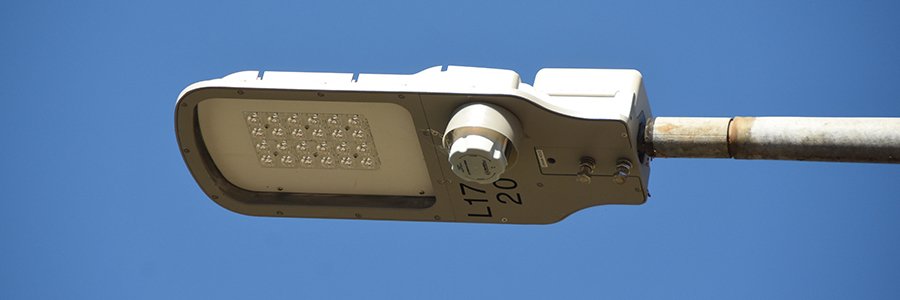
Council has installed four 50kW chargers and one 75kW charger for Electric Vehicles in Mosman, which are well utilised by the community. All energy supplied is through a renewable energy provider. EV ownership in Mosman is increasing steadily. With better city wide infrastructure Electric Vehicles are more viable.
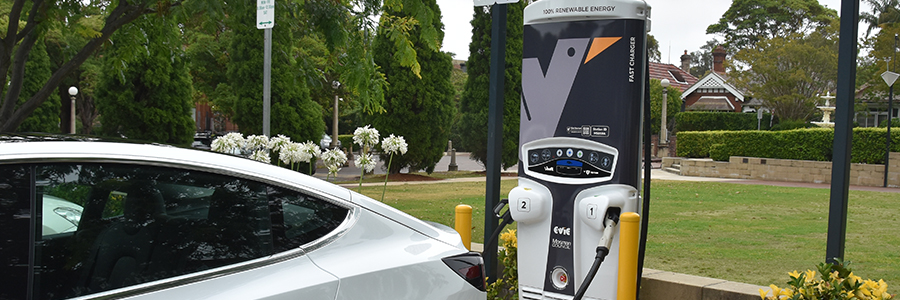
Smart irrigation systems have been installed at Rawson Oval and Balmoral Oval to increase water efficiency.
Council continues to increase revegetation and urban greening including new street and park tree planting focusing on Heat Island areas around Spit and Military Roads.
Mosman Council has supported Schools in the LGA to install solar through the Solar My Schools programme. Mosman Public Primary School has put in a 50 kW solar array, and Beauty Point Primary School has a 36 kW solar array, both significantly lowering electricity costs and carbon emissions.
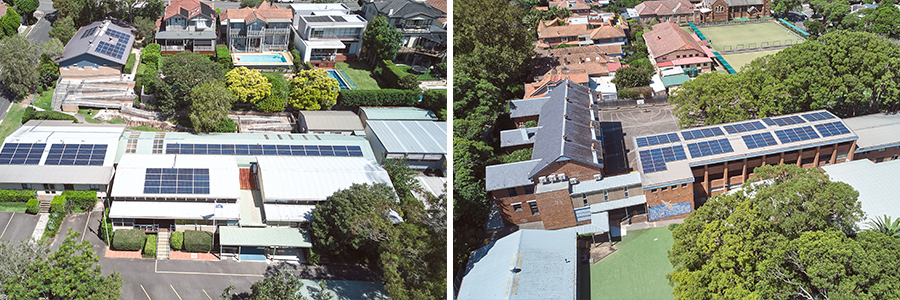
Further information about completed and planned Council mitigation projects is listed in the Climate Action Plan – Mitigation Strategy. These actions will help Council meet its 2030 carbon zero emissions commitment and build resilience in its facilities.
Mosman Apartment & Strata Savings Program
The aim of the program is to improve sustainability while reducing the cost of living & green house gas (GHG) pollution.
Annual strata fee reduction is a major focus, because the savings potential with energy upgrades is typically a good investment. So analysis will be on the numerous opportunities in common areas.
Often owners don‘t realise how much energy and money is being wasted in the hidden areas and equipment of buildings, so a report by specialists will clearly quantify that, and make recommendations for the owners corporation to follow up on.
Approving upgrades is easier now the NSW Government‘s Strata Schemes Management Amendment (Sustainability Infrastructure) Bill has been implemented. This lowers the bar from needing a special resolution (75% threshold) to sustainability infrastructure resolution (50% threshold) for any sustainability upgrade to proceed in a residential strata scheme.
When the options are clearly illustrated with a good report, the thinking becomes… why wouldn’t we upgrade, given the financial benefits!
2024-2025 Program Rollout
Free Apartment Assessment – Expressions of Interest are open
The program offers – at no cost:
- Energy assessments performed by industry specialists.
- Detailed reports which will clearly illustrate the financial case for upgrades.
- Online video call support at strata meetings if requested to help communicate benefits of building upgrades.
- General support.
Eligible Buildings
The scheme offers sustainability assessments and reports to larger strata schemes and aged care facilities.
Did you know?
- Most apartment buildings will benefit with efficiency upgrades in common areas.
- Around 51.7% of local residents live in apartments in Mosman.
- Renewable heat and electricity can both replace imported grid gas and electricity.
- Renewable heat is perfect in shady areas, at night, or if cloudy, unlike solar electricity, and can provide space heating and domestic water heating.
Energy Cost savings
- LED Lighting
- Solar electricity – solar panels for rooftops and walls, and batteries for energy storage.
- Renewable heat from the sun – for space heating and water heating.
- Energy efficiency – why waste energy?
- Often upgrades offer investment opportunities with an internal rate of return (IRR) between 15-50% 1, which will likely be one of the best investment returns you’ll ever make.
- Simple payback periods are commonly as short as 2 years.
1 Based on recent upgrades.
